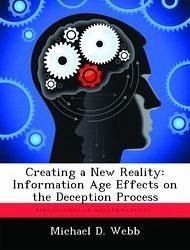Deception as a means to achieve surprise is a recurring theme in the history of warfare. Successful deception uses information to manipulate and shape an adversary's perception of the world to a viewpoint that creates an atmosphere in which the adversary acts in accordance to the deceiver's will. Deception is a complex problem that crosses the boundaries of several disciplines including sociology, psychology, and political studies. Today's information environment, however, demands a further examination of deception's relevance in the modern world. Given the technological explosion over the past two decades with respect to information flow and availability, certain questions arise. How do Information Age changes affect deception operations? Do they relegate deception to old world lore or does the increased access to knowledge and information increase deception opportunities and its effectiveness? In short, what effect does the Information Age have on the overall deception process and what are the ramifications for today's political and military strategists? In answering these questions, the deception process is simplified in a process model that encapsulates the core components of the information exchange and the interaction between deceiver and the target of the deception.








